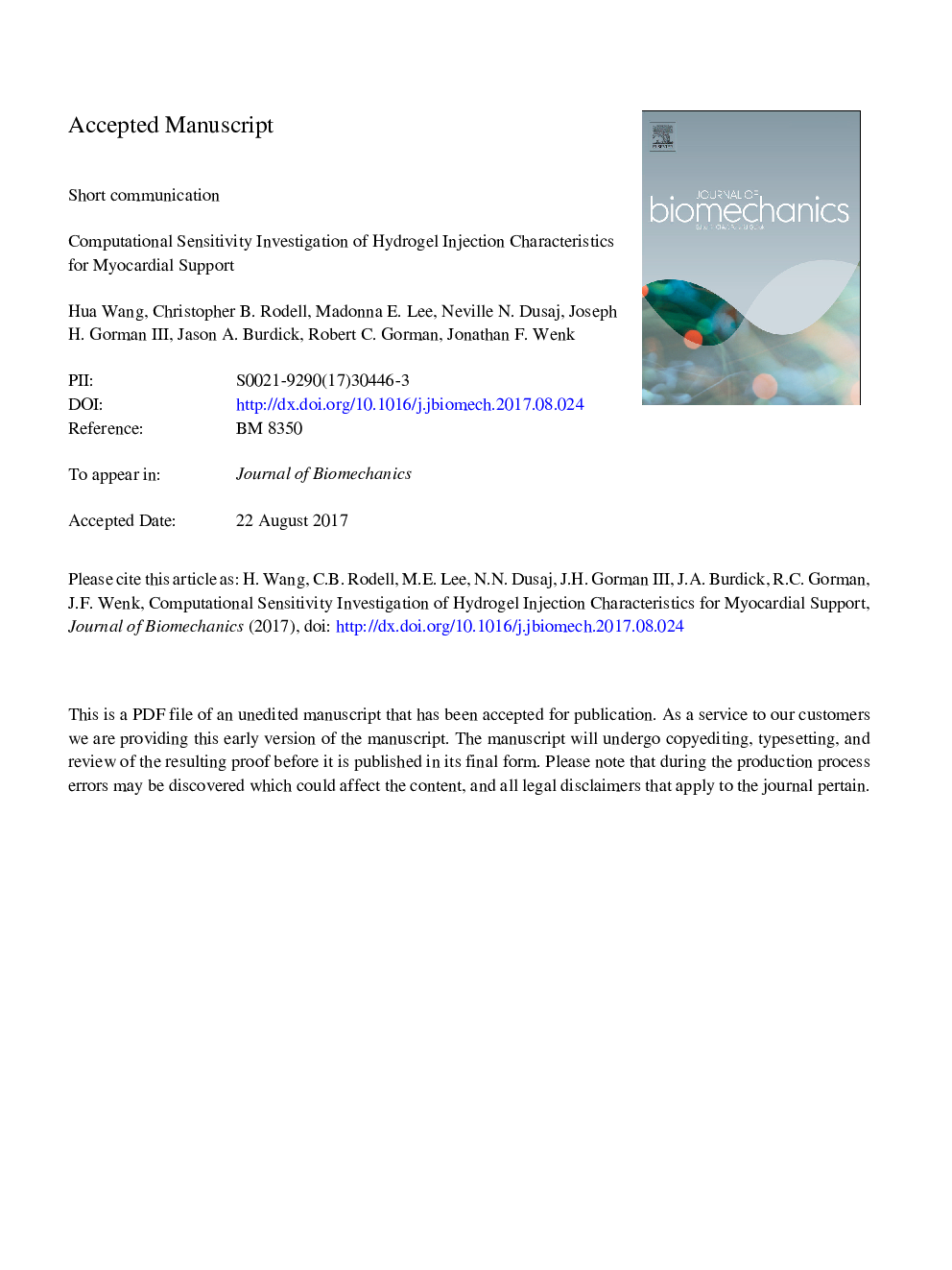| Article ID | Journal | Published Year | Pages | File Type |
|---|---|---|---|---|
| 7237122 | Journal of Biomechanics | 2017 | 23 Pages |
Abstract
Biomaterial injection is a potential new therapy for augmenting ventricular mechanics after myocardial infarction (MI). Recent in vivo studies have demonstrated that hydrogel injections can mitigate the adverse remodeling due to MI. More importantly, the material properties of these injections influence the efficacy of the therapy. The goal of the current study is to explore the interrelated effects of injection stiffness and injection volume on diastolic ventricular wall stress and thickness. To achieve this, finite element models were constructed with different hydrogel injection volumes (150 µL and 300 µL), where the modulus was assessed over a range of 0.1 kPa to 100 kPa (based on experimental measurements). The results indicate that a larger injection volume and higher stiffness reduce diastolic myofiber stress the most, by maintaining the wall thickness during loading. Interestingly, the efficacy begins to taper after the hydrogel injection stiffness reaches a value of 50 kPa. This computational approach could be used in the future to evaluate the optimal properties of the hydrogel.
Related Topics
Physical Sciences and Engineering
Engineering
Biomedical Engineering
Authors
Hua Wang, Christopher B. Rodell, Madonna E. Lee, Neville N. Dusaj, Joseph H. III, Jason A. Burdick, Robert C. Gorman, Jonathan F. Wenk,
